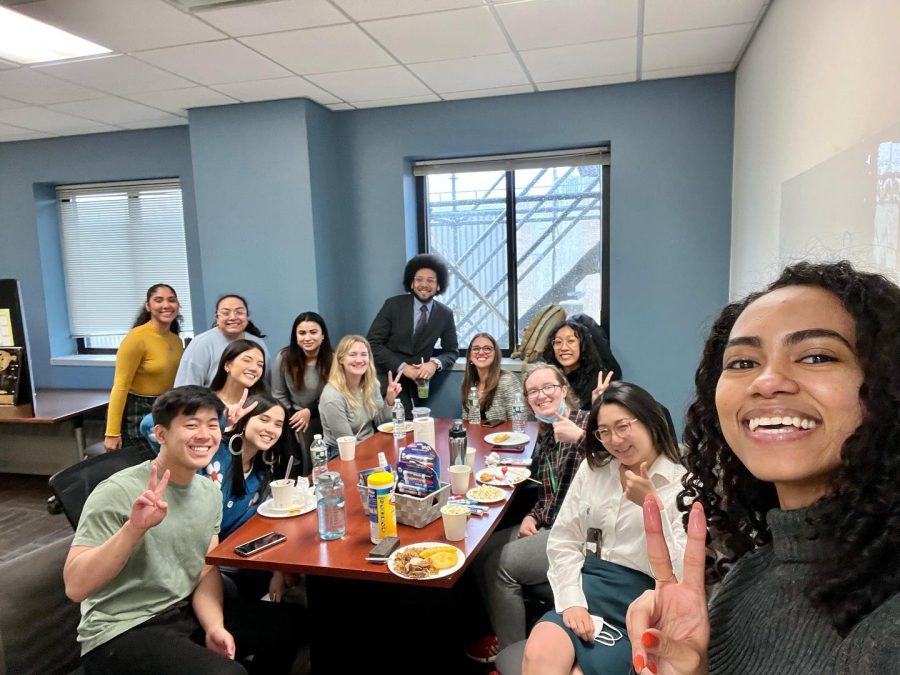OMA Celebrates AAPI Heritage Month
The Office of Multicultural Affairs (OMA) began its celebrations for Asian American and Pacific Islander (AAPI) Heritage Month that will run throughout the month of April.
Typically, AAPI Heritage Month is celebrated during the month of May, but Fordham celebrates it a month early due to final exams taking up most of May.
“I think AAPI Heritage Month is important because it’s a formal recognition of the contributions that Asian Americans and Pacific Islanders have made towards the United States, as well as their past, contemporary and continuing achievements,” said Arthur Ze An Liu, FCRH ’23, cultural programming coordinator of the AAPI committee at Rose Hill, president of Asian Cultural Exchange (ACE) and vice president of Ascend. “Asian Americans and Pacific Islanders have achieved a lot in the U.S., despite all the discrimination they have faced in the past [and] all the hardships and things that they still continue to face today.”
Throughout the month, OMA’s AAPI committee will be hosting events and programming surrounding AAPI Heritage. They began the month by hosting a luncheon on April 1. The luncheon featured traditional Thai and Vietnamese cuisine as well as opportunities for students to win prizes. The committee also hosted an event on April 5 where students could make and learn about the art of origami. According to Liu, the AAPI committee has a tabling event that will occur every Tuesday during April in the McShane Center gallery. Additionally, there are raffles that students can enter to win prizes.
The committee will be hosting a “DIY Poke Bowl” event on April 21 in McShane commons. According to Liu, this event is the one that he is looking forward to the most.
“It’s an opportunity for us to finally recognize one of the pacific islander territories, which in this case is Hawiian food. I think we have less than 10 Pacific Islander identifying people [at Fordham], and usually, when people think of AAPI, they think of Americans of Chinese descent, [or] Americans of Indian descent because these are large groups of people. It’s nice to finally recognize one of the smaller ones,” said Liu.
According to Liu, the month will conclude with a fashion show at the Lincoln Center campus.
This month marks the first time that AAPI Heritage Month will be able to be conducted fully in person since the outbreak of the COVID-19 pandemic.
While AAPI Heritage Month occurred last year, the committee focused on events that were conducted via social media or virtual formats.
AAPI Heritage Month marks a very important and impactful event for many people. To many, it represents a time for Americans to recognize the accomplishments and heritage of Asian Americans and Pacific Islanders.
“I think AAPI Heritage Month means something different for me than the simple virtue that I’m not American. I haven’t faced as much of the hardships, very little compared to most Asian Americans here. I think that social justice and uplifting humanity transcends all borders and as an Asian person myself, it allows me to still celebrate my culture, even though I am away from home,” said Liu.
Liu hopes that students at Fordham take away knowledge from each event.
He said that while he hopes that the events can serve as places for students to grow and learn about AAPI heritage, he also wants them to enjoy the events.
“I hope [students] learn a bit of knowledge about the history of AAPI people in America, but I also want them to enjoy the month because it’s a month of celebration and recognition. If they don’t enjoy it, that would be very sad,” said Liu.
“I hope that they realize that you don’t have to be AAPI identifying in order to celebrate AAPI heritage month, that goes the same for Black History Month, LatinX History Month, etc. You don’t have to identify with the group you are celebrating to celebrate their achievement.”

Isabel Danzis is a senior from Bethesda, Md. She is double majoring in journalism and digital technologies and emerging media. The Ram has been a very...







































































































































































































